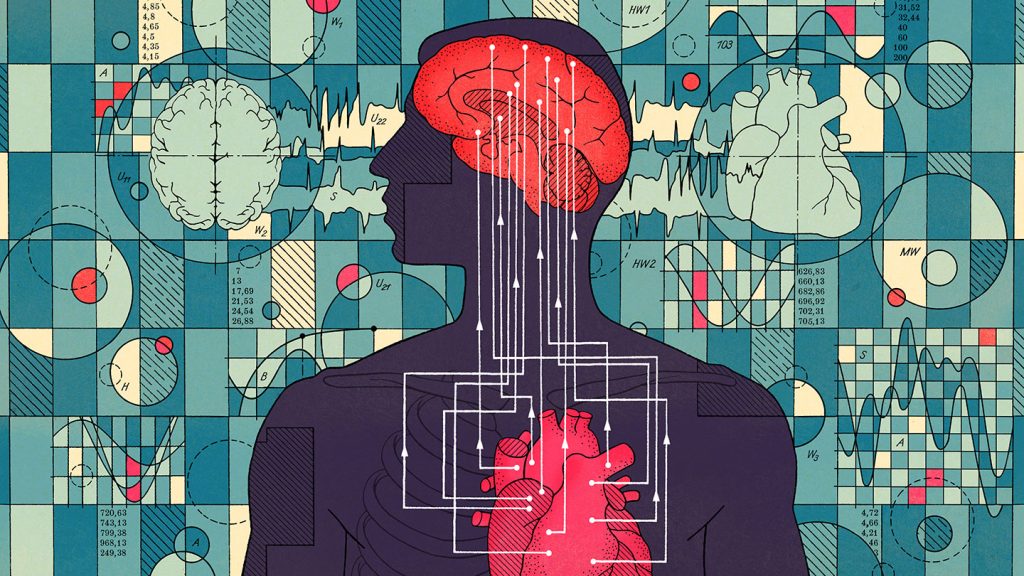A series of recent studies have highlighted the intricate connection between neural activity and cardiac cycle duration in the human brain. Kim et al. (2019) found that resting-state neural firing rate in the cingulate and parahippocampal cortices is linked to the duration of the cardiac cycle. Park et al. (2014) observed that spontaneous fluctuations in neural responses to heartbeats can predict visual detection. Garfinkel et al. (2013) discovered that cardiac timing influences memory for words and is influenced by metacognition and interoceptive sensitivity. Hsueh et al. (2023) demonstrated the cardiogenic control of affective behavioral state, further emphasizing the impact of cardiac activity on neural processes.
The mind-body problem, as explored by Dum et al. (2019), sheds light on the circuits that link the cerebral cortex to the adrenal medulla, illustrating how neural and physiological processes are intricately intertwined. Salameh et al. (2024) discovered that blood pressure pulsations can modulate central neuronal activity through mechanosensitive ion channels, further emphasizing the influence of physiological factors on neural functions. Quadt et al. (2021) conducted a randomized controlled trial on interoceptive training targeting anxiety in autistic adults, highlighting the potential of training interventions to modulate neural responses linked to emotional states.
Candia-Rivera et al. (2021) found that neural responses to heartbeats can detect residual signs of consciousness during resting states in postcomatose patients, indicating the potential of using interoceptive signals to assess cognitive functions. Engelen et al. (2023) delved deeper into the concept of interoceptive rhythms in the brain, shedding light on the mechanisms underlying the integration of physiological signals into neural processes. These studies collectively demonstrate the intricate interplay between cardiac activity, neural function, and cognitive processes, highlighting the importance of considering physiological factors in understanding brain function and behavior.
The findings suggest that cardiac activity not only influences neural firing rates but also plays a significant role in cognitive functions such as memory and emotional processing. The cardiogenic control of affective behavioral state further emphasizes the impact of physiological signals on emotional responses. Understanding the mechanisms through which the brain integrates interoceptive signals can provide insights into conditions such as anxiety and autism, paving the way for targeted interventions that leverage the connection between physiological and neural processes.
Overall, the studies discussed highlight the complex and dynamic relationship between cardiac activity and neural processes in the human brain. From influencing memory and emotional responses to detecting consciousness in coma patients, cardiac signals play a crucial role in modulating neural functions. Further research in this area could lead to innovative interventions targeting conditions such as anxiety and cognitive impairments by harnessing the interplay between physiological and neural systems. By considering the influence of cardiac activity on brain function, researchers can gain a more comprehensive understanding of the mind-body connection and its implications for health and well-being.


